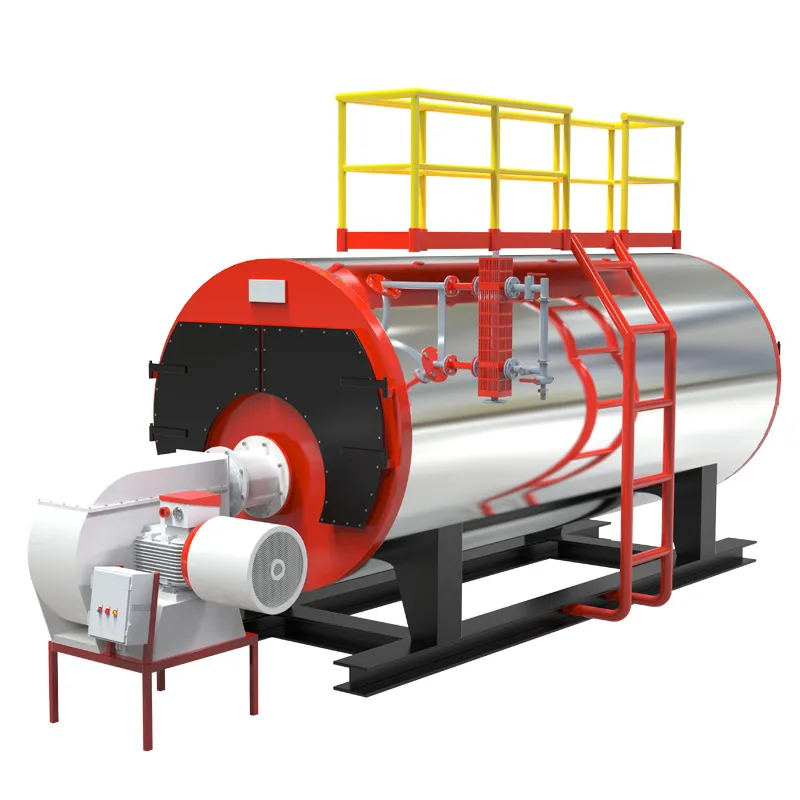
Dec . 14, 2024 07:56 Back to list
Understanding Pressure Levels in Hot Water Boiler Systems for Optimal Performance
Understanding Hot Water Boiler Water Pressure A Comprehensive Guide
Hot water boilers are essential components of many heating systems in residential and commercial buildings. They are designed to heat water, which is then distributed throughout the system to provide warmth and comfort. However, maintaining proper water pressure in a hot water boiler is crucial for its efficient operation and longevity. This article will explore the importance of water pressure in hot water boilers, how to monitor it, and what to do if issues arise.
The Importance of Water Pressure
Water pressure in a hot water boiler affects its efficiency and performance. Proper pressure ensures that hot water is delivered effectively to various parts of the building. If the pressure is too low, the boiler may struggle to circulate water, leading to inefficient heating and potentially higher energy bills. Conversely, excessively high pressure can put undue stress on the boiler’s components, increasing the risk of leaks or failures.
Typically, the optimal operating pressure for a residential hot water boiler ranges between 12 to 15 psi (pounds per square inch) when the system is cold, and it can go up to 20 psi when the system is hot
. It's essential for homeowners to be aware of these parameters to ensure their systems operate smoothly.Monitoring Water Pressure
Boiler systems often come equipped with pressure gauges that display the current water pressure. These gauges are usually located on the front of the boiler or near the water supply line. Regularly checking the pressure gauge can help homeowners identify potential problems before they escalate.
If the pressure falls below the recommended range, topping up the boiler system with water through the filling loop can help restore it to the correct level. However, if the gauge consistently shows low pressure, it may indicate a leak in the system, which needs to be addressed promptly.
hot water boiler water pressure

In contrast, if the pressure exceeds the recommended level, it is vital to investigate the cause. Common reasons for high pressure include a faulty pressure relief valve, an overfilled system, or a malfunctioning expansion tank.
Troubleshooting Common Issues
1. Low Water Pressure If the boiler experiences low water pressure, check for visible leaks in the system. Inspect the pressure relief valve, radiator valves, and joints for signs of water. If leaks are detected, call a professional to repair them. Additionally, ensure the water feed valve is fully opened and functioning correctly.
2. High Water Pressure High pressure can be more dangerous than low pressure. First, turn off the boiler and inspect the pressure relief valve; it may need to be replaced. Checking the expansion tank for proper air pressure can also prevent excessive water pressure. If problems persist, consulting a qualified technician is crucial.
3. Fluctuating Pressure If the water pressure in the boiler is inconsistent, it may indicate problems with the expansion tank, the fill valve, or air trapped in the system. Bleeding radiators may help release trapped air and restore consistent pressure.
Conclusion
Maintaining optimal water pressure in a hot water boiler is critical for its efficient operation and the comfort of occupants. Regular monitoring and timely troubleshooting can prevent most pressure-related issues, ultimately prolonging the life of the boiler and avoiding costly repairs. Homeowners should familiarize themselves with the signs of low and high pressure and reach out for professional help when necessary. By doing so, they ensure a safe and efficient heating system that reliably keeps their homes warm.
-
High-Efficiency Commercial Oil Fired Steam Boiler for Industry
NewsJul.30,2025
-
High-Efficiency Biomass Fired Thermal Oil Boiler Solutions
NewsJul.30,2025
-
High Efficiency Gas Fired Thermal Oil Boiler for Industrial Heating
NewsJul.29,2025
-
High-Efficiency Gas Fired Hot Water Boiler for Sale – Reliable & Affordable
NewsJul.29,2025
-
High Efficiency Biomass Fired Hot Water Boiler for Industrial and Commercial Use
NewsJul.29,2025
-
High-Efficiency Biomass Fired Hot Water Boiler for Industrial Use
NewsJul.28,2025
Related PRODUCTS






















